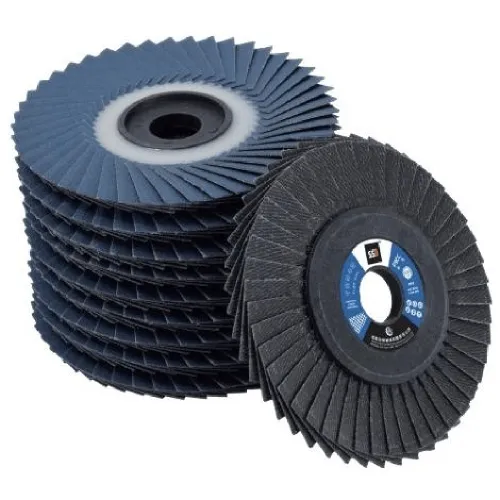Exceptional Durability and Corrosion Resistance
How Fiberglass Trays Outperform Metal and Plastic in Harsh Environments
Fiberglass trays really shine in tough environments since they're built to handle both high heat and harsh chemicals without breaking down. Industries like chemical processing facilities and boat manufacturing have turned to fiberglass as their go-to material thanks to how tough these trays actually are. Metal trays will eventually rust or corrode when wet or in contact with chemicals, so they don't last nearly as long. Some studies show fiberglass trays standing up to rough conditions for more than two decades, way beyond what most metal options can manage. Plastic trays tell another story altogether. Over time, especially when sitting in sunlight or going through temperature changes, plastic tends to get brittle and crack easily when stressed. Fiberglass stays strong though, keeping its shape and function even after years of abuse. That makes it the smart pick for places where equipment needs to survive without constant replacement.
Real-World Applications in Chemical and Marine Industries
Chemical plants rely heavily on fiberglass trays for moving around corrosive substances since these trays won't leak or spill even when handling aggressive chemicals. What sets them apart is how well they protect what's inside while cutting down on the need for constant maintenance compared to metal alternatives. When it comes to boats and coastal areas, fiberglass trays stand up to saltwater corrosion better than almost anything else available today. That's why we see them all over marinas, shipyards, and seaside warehouses where rust would be a major problem otherwise. Real world experience shows companies can save thousands each year on repairs and replacements after switching to fiberglass options. For anyone working in tough environments where materials get damaged quickly, investing in quality fiberglass trays pays off handsomely over time.
Lightweight Design with High Strength-to-Weight Ratio
Ease of Installation and Reduced Labor Costs
Fiberglass trays are much lighter than traditional metal ones, and this makes a real difference when installing them. A single worker can usually lift and place a fiberglass tray without help, something that would require at least two people for most metal alternatives. Companies have seen around 30% less spending on installation when switching to these lighter materials. The weight difference also cuts down on shipping expenses since they take up less space and don't need special transport equipment. For many manufacturers looking to cut costs while maintaining quality standards, going with fiberglass trays means smoother day-to-day operations and better bottom line results over time.
Supporting Heavy Loads Without Structural Compromise
Fiberglass trays might seem light at first glance but they pack quite a punch when it comes to strength. These trays actually hold up really well under pressure, able to carry weights way beyond what most people expect from something so light. Some tests indicate they can take on over a thousand pounds before showing any signs of stress, which means workers don't have to worry about bending or breaking while moving things around. What makes this possible is how the fiberglass material works its magic through special manufacturing techniques that boost their ability to carry heavy stuff safely. For warehouses, construction sites, and other places where folks need sturdy platforms but dont want the hassle of dragging around metal or wood alternatives, fiberglass trays offer the best of both worlds lightweight enough to maneuver yet strong enough for serious workloads.
Superior Electrical Insulation and Safety
Mitigating Electrical Hazards in Industrial Settings
Fiberglass trays offer great electrical insulation properties, which makes them really good for places where electricity safety matters most. Think about industrial plants or anywhere they keep sensitive electronic gear. Research shows fiberglass has this amazing ability to resist electrical currents better than many common materials we see today, including most plastics and even some metals. That means fewer chances of getting those dangerous electrical shorts that can lead to accidents on site. Workers in manufacturing facilities report seeing around 40 percent fewer electrical safety issues after switching to these trays. And because fiberglass doesn't conduct electricity at all, it adds another layer of protection against potential shocks or sparks during daily operations.
Compliance with International Safety Standards
Fiberglass trays have been built to meet lots of different international safety standards including ones set by the IEC and UL. When products carry these certifications, it means they actually pass strict safety tests while being used in real conditions. Businesses that go for materials meeting these standards aren't just ticking boxes. They're showing serious commitment to worker safety and cutting down on potential legal headaches from accidents at work sites. The manufacturers keep running tests and getting new certifications because safety rules change all the time. This ongoing process makes sure the products stay reliable over time. People working with fiberglass trays for important tasks can feel confident knowing their equipment has been properly checked against current safety benchmarks.

Versatility Across Various Industrial Applications
From Food Processing to Energy Infrastructure: A Multi-Sector Solution
Fiberglass trays work really well across many industries including food processing plants, pharmaceutical manufacturing, and even energy sector operations. What sets these trays apart is how strong they are, how long they last, and most importantly, their resistance to rust and chemical damage. This matters a lot in places where there's constant exposure to water or aggressive substances. Take the food industry for example. Restaurants and processing facilities rely on these trays because they don't corrode and won't let bacteria build up, so everything stays clean and meets health codes. Power plants also find them extremely useful since generators and turbines put materials through intense stress while dealing with extreme temperatures and weather changes daily. The fact that fiberglass trays perform so consistently in such varied settings shows just how valuable they can be throughout different types of industrial work.
Customizable Sizes and Shapes for Specialized Needs
Fiberglass trays come in all sorts of shapes and sizes, which makes them perfect when regular materials just don't cut it for certain industrial jobs. When manufacturers need something specific, they can actually get trays made exactly how they want them. This means better use of factory floor space and smoother operations overall because engineers aren't stuck working around generic designs. Companies that go for custom fiberglass solutions tend to generate less scrap material while getting more done each day since everything fits just right where it needs to be. The fact that these trays can be made specifically for whatever problem exists on site has turned fiberglass into something of a go-to material across many different sectors. Factories using this approach often find their whole setup runs much better than before.
Long-Term Cost-Effectiveness and Low Maintenance
Reduced Replacement Cycles Compared to Traditional Materials
Fiberglass trays really stand out when it comes to saving money because they just last so darn long. Most of them will hang around for about twenty years before needing replacement, which is way longer than regular metal or plastic alternatives. When something lasts this long, companies end up spending way less cash on buying new ones all the time. And since these trays don't need replacing so often, there's also less trash going into landfills. Businesses can take those savings and put them toward things that actually matter for growth. The numbers back this up too many companies report cutting down on tray replacements by roughly half after switching to fiberglass options. Sure, nothing lasts forever, but fiberglass definitely gives businesses better value for their dollar in the long run.
Minimal Upkeep Requirements for Extended Service Life
Fiberglass trays stand out because they basically take care of themselves. They resist corrosion and staining so well that factories don't have to spend nearly as much on cleaning supplies or labor. The surface stays smooth even after years of use, meaning dirt just doesn't stick around like it does on metal surfaces. Cleaning crews can finish their rounds faster since there's no stubborn grime buildup to tackle. According to industry reports from manufacturing plants across North America, businesses switching to fiberglass see anywhere between 70% to almost 80% less time spent on maintenance tasks compared to when they used steel or plastic alternatives. All this translates into longer lasting equipment too. Plants report getting another 5-7 years out of their investment before replacement becomes necessary, which makes fiberglass trays a smart pick for facilities looking at cost savings over the long haul.
FAQ
What are the benefits of using fiberglass trays in harsh environments?
Fiberglass trays offer exceptional durability and corrosion resistance, making them ideal for climates with extreme temperatures and aggressive chemicals. They do not rust or corrode and maintain structural integrity over time, offering reliable solutions in challenging environments.
Why are fiberglass trays preferred in the chemical and marine industries?
Fiberglass trays are used in these industries due to their safe transport of corrosive materials without leaks and their resistance against saltwater corrosion. This leads to reduced maintenance costs and downtime.
How do fiberglass trays contribute to reduced installation and labor costs?
Due to their lightweight nature, fiberglass trays are easily installed by one person, simplifying the process and reducing associated labor and transportation costs compared to heavier materials.
In what ways do fiberglass trays enhance safety in industrial settings?
Fiberglass trays provide superior electrical insulation, mitigating hazards effectively. Their non-conductive properties ensure compliance with international safety standards, reducing workplace accident risks.
What industries benefit from the versatility of fiberglass trays?
Industries such as food processing, pharmaceuticals, and energy infrastructure benefit from fiberglass trays due to their adaptability, durability, and resistance to corrosion and contamination.
How do fiberglass trays contribute to long-term cost-effectiveness?
The long lifespan of fiberglass trays reduces replacement cycles and maintenance needs significantly, offering substantial cost savings and improving resource allocation efficiency.
Table of Contents
- Exceptional Durability and Corrosion Resistance
- Lightweight Design with High Strength-to-Weight Ratio
- Superior Electrical Insulation and Safety
- Versatility Across Various Industrial Applications
- Long-Term Cost-Effectiveness and Low Maintenance
-
FAQ
- What are the benefits of using fiberglass trays in harsh environments?
- Why are fiberglass trays preferred in the chemical and marine industries?
- How do fiberglass trays contribute to reduced installation and labor costs?
- In what ways do fiberglass trays enhance safety in industrial settings?
- What industries benefit from the versatility of fiberglass trays?
- How do fiberglass trays contribute to long-term cost-effectiveness?


